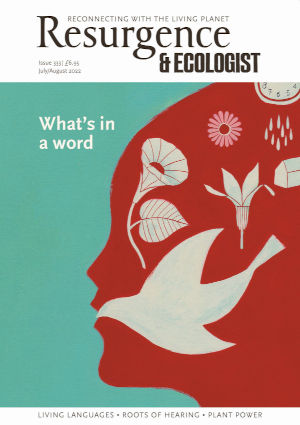In his latest work of non-fiction, Amitav Ghosh traces the history of the nutmeg (Myristica fragrans), a native species of the Banda Islands in Indonesia, from colonial times to the present day. He puts forward the idea that the nutmeg’s two hemispheres hold hidden meaning in today’s world: one shell portraying its commercial merits as a spice, and the other, elusive crust remaining open to interpretation through parables passed on through the oral tradition.
Ghosh writes that the nutmeg prompted European navigators to break the Venetian hold on the trade of nutmeg, thus engaging monarchs of that time in the ‘spice race’, one that was similar to our present-day ‘space race’ of the rich and the powerful. He relates how, before the arrival of the Dutch East India Company in 1609, the Banda Islands had already seen Portuguese and Spanish traders landing on their coasts. The East India Company’s intent had long been to impose a trade monopoly on the island’s nutmegs and the inner lacy coating of the nutmeg seed, called mace. War between colonial powers over access to nutmeg wreaked devastation on local populations. This theme of the destructive power of colonial extraction will be familiar to Ghosh fans through his fiction.
The book continues by connecting history to the present. Ghosh writes that in the 17th to 19th centuries, trade wars were fought over plants and botanical matter, and that likewise in today’s world, fossilised botanical matter is coveted and fought over, as a source of energy. Ghosh’s exploration of the nutmeg shows us that the stories of the Bandanese are like our present-day accounts of the environmental crisis. “The continuities between the two are so pressing and
powerful,” he writes, “that it could even be said that the fate of the Banda Islands might be read as a template for the present, if we only knew how to tell that story.”
Ghosh suggests that humans should consider a transition towards an Earth-friendly industrial revolution. The book envisages an uprising of our times that will ensure ecological and cultural sustainability on our planet. Ghosh contends that during the Industrial Revolution of the 19th century, fossil fuels triumphed over other, cleaner sources of energy, as they had the potential to strengthen structures of power. Coal mines sprouted in industrial cities with cheap labour, whereas watermills could function only near water sources such as rivers, canals and streams. Like the nutmeg, oil and coal have been transported around the planet. The solution, Ghosh says, lies in reducing our carbon footprint, phasing out fossil fuels, and moving towards a greener economy where sources like the sun, air and water could manifest their immense liberatory power. The book advocates that everyone, whether an individual, a farm or a factory, could generate their own energy, thus preventing oil leaks on tankers, alleviating the hard toil of workers in coal mines, and erasing the long supply chains required for fossil fuels. Ghosh believes that our relationship with the land cannot heal unless we hear its stories and restore non-human voices to our stories. This now rests upon “writers, artists, filmmakers, and everyone else who is involved in the telling of stories: to us falls the task of imaginatively restoring agency and voice to nonhumans”.







